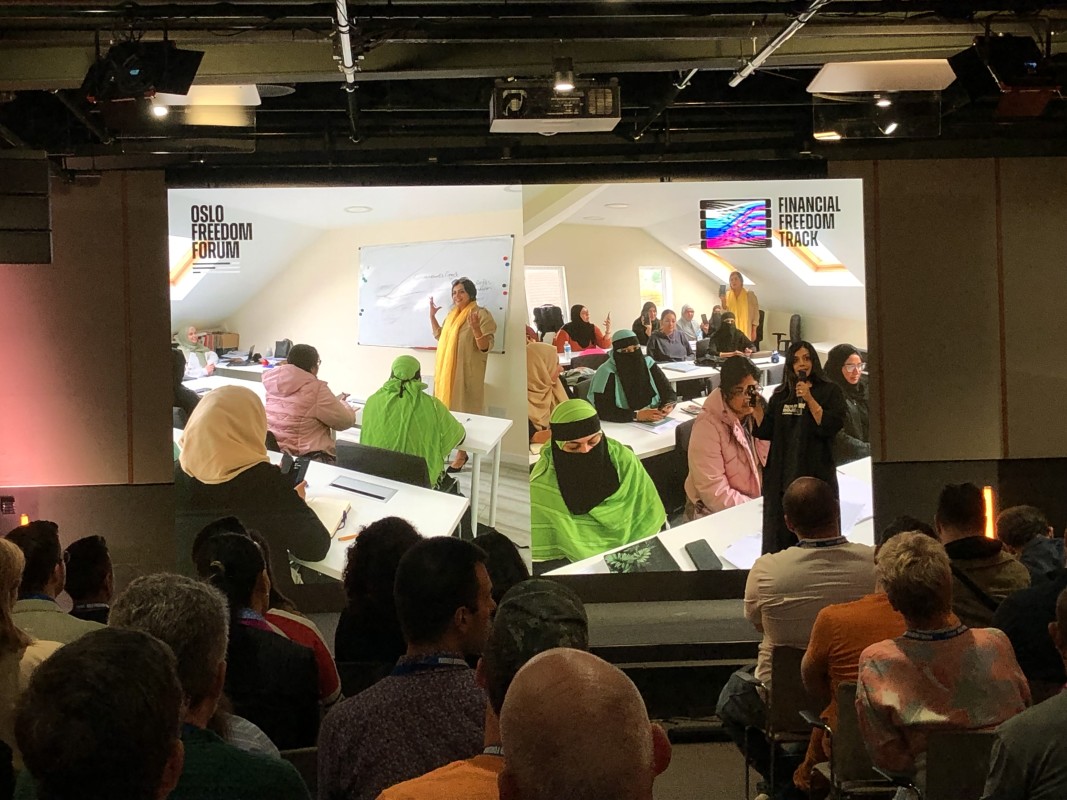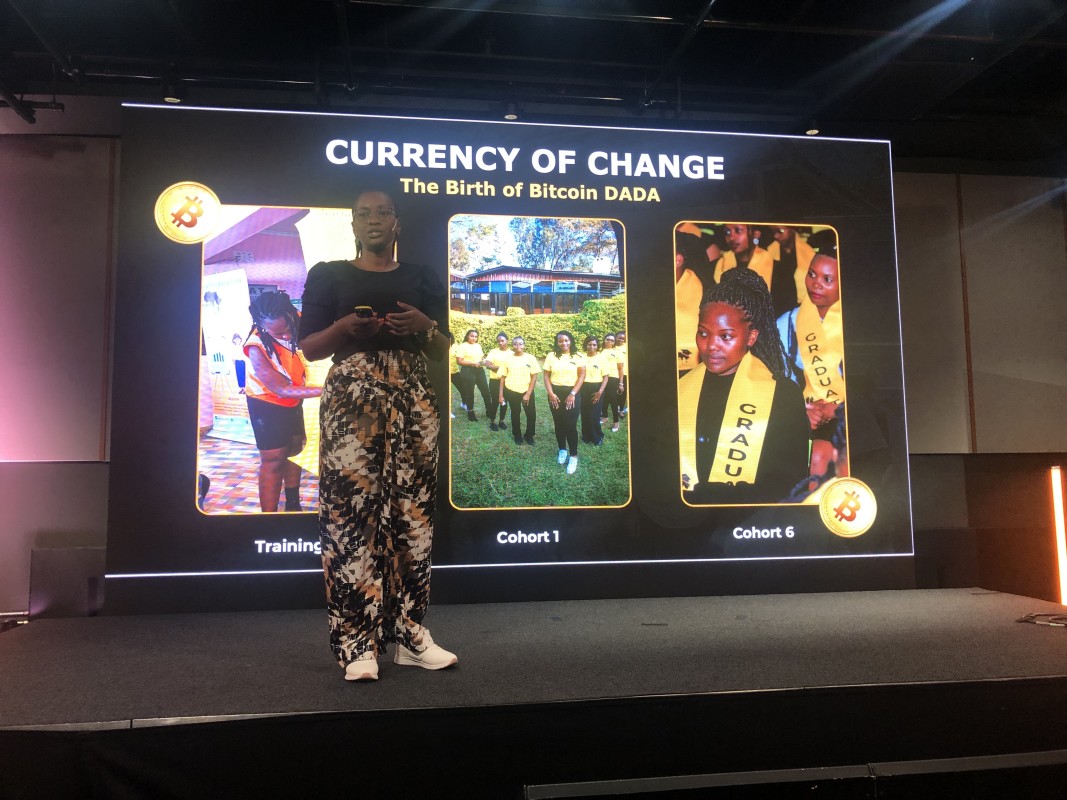Oslo Freedom Forum Witnesses Global Momentum in Bitcoin and Activism

On Wednesday, social Bitcoin supporters from Kenya to Canada to Russia gathered on the final day of the 2024 Oslo Freedom Forum as part of the Financial Freedom Track event to discuss how Bitcoin will become a tool for people around the world. It provided insight into what could be possible. Most needed.
Alex Gladstein, Chief Strategy Officer of the Human Rights Foundation (HRF), the organization behind the Oslo Freedom Forum, began the day by discussing why Bitcoin is essential in the human rights context. He then read two related passages from Lyn Alden’s book. Broken Money: Why Financial Systems Fail and How They Can Be Improved Before inviting the author, a respected macroeconomic analyst, to the stage.
Alden gave a brief overview of the currency’s history before emphasizing that Bitcoin provides access to a free and open financial system for anyone in the world. She also pointed out that Bitcoin, now 15 years old, has matured, become easier to use, and is quite liquid in terms of its network and assets, making it better suited to human rights situations than before.
Hadiya Masieh, founder of the Groundswell Project, an organization working to foster tolerance and empathy among diverse communities, took the stage and delivered a talk titled “How Bitcoin Is Funding Counterterrorism.” She highlighted how she taught Somali women how to use Bitcoin to fund political campaigns for female Somali political candidates.

Noble Nyangoma, CEO of Bitcoin Innovation Hub, spoke shortly after Masieh and discussed the work he does for refugees in Uganda. Many of these people are not yet citizens of Uganda and cannot open bank accounts in Uganda. She emphasized that Bitcoin is essential for these refugees.
“With Bitcoin, no one will ask, ‘Where is my national ID?’” Nyangoma said.
One of the most moving speeches of the day came from Farida Nabourema, Togolese activist and Executive Director of the African Bitcoin Conference. She shared the harrowing story of how she once needed an emergency surgery in Ghana and barely got it done because at the time of the surgery she did not have enough money to pay for it in local currency.
However, although she had enough funds in her home country’s currency to pay, the hospital would not accept it. Her point, she argued, was that Africa is financially divided between the continent’s various currencies, none of which can be used across borders.
She explained that Bitcoin solves this problem because it helps create a world, especially in Africa, where the situation she experienced in the Ghanaian hospital could have been avoided.
Before lunch, Ben Perrin, better known as BTC Sessions, gave a presentation on how to use Bitcoin in a high fee environment, and HRF team member Alex Li announced the 10 winners of the Bitcoin Development Fund. Grants for software developers who create tools that add privacy to the Lightning Network, build decentralized communications, and provide technical tools to human rights defenders.
In the afternoon, Sparrow Wallet developer Craig Raw detailed several practical ways to use Bitcoin more personally, while Lorraine Marcel, founder of Bitcoin DADA, a virtual Bitcoin education platform and community for African women, We shared the story of how this catalyzed notable change. To her students and the people her organization serves.
“Before Bitcoin, I couldn’t really see a real way for me and my sisters at home to achieve financial freedom or independence,” Marcel said in his presentation.
She also revealed that the organization uses Bitcoin as a fundraising tool to fund an initiative to provide feminine hygiene products and educational materials to schoolgirls in Kibera, one of Africa’s largest urban slums. .

Calle, the anonymous software developer who created the Cashu protocol, an ecash protocol that provides more transaction privacy with Bitcoin, provided an overview of how ecash works and how the privacy it offers can help activists .
Midway through the afternoon session, HRF’s Director of Financial Freedom, Christian Keroles, interviewed Luthando Ndabambi, community leader of Bitcoin Ekasi, a circular Bitcoin economy located in a township in South Africa. Ndamambi told Keroles that before Bitcoin, he and many others in his community did not have the means to save, which led him to not think much about the future.
“I tell people in my neighborhood, ‘When you think about Bitcoin, think about saving for your kids,’” Ndabambi said.
Soon after, host Peter McCormack What Bitcoin Did On the podcast, we sit down with Mike Brock, Head of TBD at Block, and Anna Chekhovich, CFO of Alexey Navalny’s Anti-Corruption Foundation and HRF non-profit Bitcoin adoption leader. The three discussed how Bitcoin can help preserve democracy and the implications of a crackdown on privacy-focused Bitcoin wallets in the United States.
“If we want to accept donations, we need to provide donors with high-level security tools for payments,” Chekhovich explained.
“If there was even the slightest chance that your personal information would be leaked to the government and put you in jail, you wouldn’t donate. This is why privacy tools are important, and the Anti-Corruption Foundation is very concerned about them. “We will do our best to ensure the safety of our donors,” he added.
“Without these privacy tools, we wouldn’t be able to accept Bitcoin donations because we wouldn’t be able to put donors at that much risk.”
Dulce Villarreal, CEO and founder of Librería de Satoshi (Satoshi Library), a Bitcoin hub that provides Bitcoin educational materials and classes as well as financial support for Bitcoin developer students, said that over 50 million people live in He said he was concerned about the facts. Under Latin America’s dictatorships, central bank digital currencies (CBDCs) will further empower the continent’s authoritarian leaders.
Therefore, she is on a mission to make Bitcoin ubiquitous by educating people around the world to research and support Bitcoin.
“Our mission is to provide Bitcoin technical education in your language,” Villarreal said. “Librería de Satoshi’s goal is to nurture the next generation of Bitcoin contributors, entrepreneurs, and educators.”
The day concluded with a fireside chat with Jack Mallers, founder and CEO of Strike, and Matt Odell, managing partner of Ten31 and co-founder of OpenSats. The two spoke about the importance of a profitable Bitcoin business contributing to open source developers, just as they announced that Strike would donate $100,000 to the OpenCash Association, a non-profit organization supporting developers founded by the aforementioned Calle. We discussed it.
“Having worked at HRF and coming here, I have an obligation to ensure that Bitcoin succeeds even though it may not be in the immediate interest of shareholders (or) the company,” Mallers explained. “This is part of the game theory that makes the whole project work. So whatever your role, we are all on the same team. “When Bitcoin gets better, we all get better.”
These are powerful words to end a conference that featured the voices of many people who have done their best to ensure that Bitcoin actually makes our lives better for all of us.
